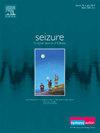Neuropsychology of late-onset epilepsies
IF 2.7
3区 医学
Q2 CLINICAL NEUROLOGY
引用次数: 0
Abstract
In an increasingly ageing society, patients ageing with epilepsy and those with late-onset epilepsies (LOE) represent a challenge for epilepsy care and treatment. Senescence itself bears risks of pathologies which in the form of acute focal damage (e.g. stroke) or slowly progressive degenerative damage can cause seizures and substantial cognitive impairment. There is converging evidence from studies in LOE that cognitive impairments are present from epilepsy onset before treatment is initiated and may even precede the emergence of seizures. This suggests that these impairments (like the seizures) are expressions of the underlying disease. Indeed, both seizures and cognitive impairments can be early indicators of disease conditions which lead to mental decline. Cognitive decline over time poses the challenge of disentangling the interrelation between seizures, treatment effects and underlying disease. This issue must be considered as some of the etiologies for causing neuropsychological decline can be addressed. Medication and active epilepsy can contribute to impairments and their impact may be reversible. Dementia is rare if seizures are what has brought the person to attention, and if this is not accompanied by other slowly developing features (such as cognitive of psychiatric changes). From a neuropsychological point of view choosing the right screening tools or assessments, obtaining the history and timeline of impairments in relation to epilepsy, and most importantly longitudinally following the patients regardless of whether epilepsy is ultimately controlled or not appear essential.
晚发性癫痫的神经心理学。
在日益老龄化的社会中,老年癫痫患者和晚发性癫痫患者(LOE)是癫痫护理和治疗面临的一项挑战。衰老本身就存在病变风险,急性局灶性损害(如中风)或缓慢进展的退行性损害都可能导致癫痫发作和严重的认知障碍。LOE的研究结果表明,认知障碍在开始治疗前就已存在,甚至可能早于癫痫发作。这表明这些障碍(与癫痫发作一样)是潜在疾病的表现形式。事实上,癫痫发作和认知障碍都可能是导致智力衰退的疾病的早期征兆。认知能力随着时间的推移而下降,这就给厘清癫痫发作、治疗效果和潜在疾病之间的相互关系带来了挑战。这个问题必须考虑到导致神经心理衰退的一些病因。药物治疗和活动性癫痫可导致损害,其影响可能是可逆的。如果是癫痫发作引起了患者的注意,并且没有伴随其他缓慢发展的特征(如认知和精神方面的变化),痴呆是罕见的。从神经心理学的角度来看,选择正确的筛查工具或评估方法、获得与癫痫有关的病史和障碍时间表,以及最重要的是,无论癫痫最终是否得到控制,对患者进行纵向跟踪似乎都是至关重要的。
本文章由计算机程序翻译,如有差异,请以英文原文为准。
求助全文
约1分钟内获得全文
求助全文
来源期刊

Seizure-European Journal of Epilepsy
医学-临床神经学
CiteScore
5.60
自引率
6.70%
发文量
231
审稿时长
34 days
期刊介绍:
Seizure - European Journal of Epilepsy is an international journal owned by Epilepsy Action (the largest member led epilepsy organisation in the UK). It provides a forum for papers on all topics related to epilepsy and seizure disorders.
 求助内容:
求助内容: 应助结果提醒方式:
应助结果提醒方式:


